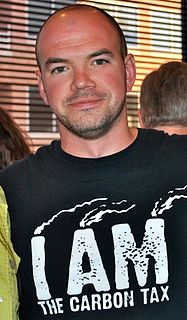A Quote by Nathan Rosenberg
Innovation often originates outside existing organizations, in part because successful organizations acquire a commitment to the status quo and a resistance to ideas that might change it
Related Quotes
Competition has never been more threatening than it is now. Innovative thinkers challenge the status quo in their organizations. They are often viewed as "troublemakers." They threaten the defenders of the status quo. So competition within an organization can also be brutal. The most effective leaders overcome "the ideology of comfort and the tyranny of custom" by being change agents themselves. They encourage and reward innovative thinking. I have observed that people only resist changes imposed on them by other people.
I find that it's almost essential to fall in love with an idea to invest the time it takes to make it good and worth sharing. And then, the hard part: deleting that idea when it's just not what it could be. Too often, organizations are good at the first part, but struggle with the second. And so we defend expired business models, support the status quo and have a knee-jerk inclination to preserve what we've got.
I am an innovator. This is a term of distinction, a term of honor, rather than something to hide or apologize for. Anyone who
has new or valuable ideas to offer stands outside the intellectual status quo. But the status quo is not a stream, let alone a 'mainstream'.
It is a stagnant swamp. It is the innovators who carry mankind forward.
Organizations have to come to grips with the fact that tests of adaptive capability aren't always pleasant. Learning can be a powerful emotional event, and organizations have to be cognizant of that. They must understand that those who complete high-quality executive education programs are going to see the organization with fresh eyes after they return. Those who re-enter the workplace filled with new enthusiasm and new ideas often find a chilly response on the part of their supervisors.
To be successful, it is imperative that you not only know the organizations you work with, but more specifically, you have to know the actual people you work with within these organizations, understand what their personal goals and motivations are. In short, to be successful, you need to humanize your clients.
Face the facts, all these environmental organizations are thirty, forty, fifty years old. They have big buildings, big obligations, big staffs. They may trade on their youthful dreams, but the truth is, they're now part of the establishment. And the establishment works to preserve the status quo. It just does.



































